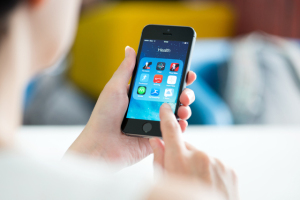por
Lauren Dubinsky, Senior Reporter | March 10, 2015
Apple announced its open source software framework for medical and health research, ResearchKit, which will be released next month. It will aid physicians and scientists in collecting data from iPhone apps.
“With hundreds of millions of iPhones in use around the world, we saw an opportunity for Apple to have an even greater impact by empowering people to participate in and contribute to medical research,” Jeff Williams, senior vice president of operations at Apple, said in a statement.
Apple’s HealthKit is a software framework that was introduced to its iOS 8 mobile operating system to allow different health and fitness apps to communicate with each other. When the iPhone app user grants permission, data from the Health app including weight, blood pressure, glucose levels and asthma inhaler use can be accessed.



Ad Statistics
Times Displayed: 7549
Times Visited: 112 Fast-moving cardiac structures have a big impact on imaging. Fujifilm’s SCENARIA View premium performance CT brings solutions to address motion in Coronary CTA while delivering unique dose saving and workflow increasing benefits.
In order to get information on the user’s gait, motor impairment, fitness, speech and memory, ResearchKit can also request access to the iPhone’s accelerometer, microphone, gyroscope and GPS sensors. A few research institutions have been pioneers in creating apps with ResearchKit for breast cancer, cardiovascular disease, Parkinson’s disease, asthma and diabetes.
UCLA’s Jonsson Comprehensive Cancer Center created the Share the Journey app, which is a research study investigating why some breast cancer survivors recover more quickly than others, why their symptoms fluctuate over time, and ways to improve their status. The app will utilize surveys and the iPhone’s sensor data to monitor fatigue, mood and cognitive changes, sleep disturbances and declining physical activity.
A few of the other apps include the MyHeart Counts app, created by Sanford Medicine to determine the role that physical activity and lifestyle play in cardiovascular health, and the Parkinson mPower app, developed by Sage Bionetworks and the University of Rochester to track the symptoms and record activities of users with Parkinson’s disease.
This makes managing studies easier for researchers, who used to spend a lot of their time recruiting study participants and filling out paperwork. The participants don’t have to be within driving distance of an institution, since they can complete tasks and fill out surveys on the app.
“The data it will provide takes us one step closer to developing more personalized care,” Dr. Patricia Ganz, professor at the UCLA Fielding School of Public Health and Director of Cancer Prevention & Control Research at UCLA’s Jonsson Comprehensive Cancer Center, said in a statement.
Back to HCB News

